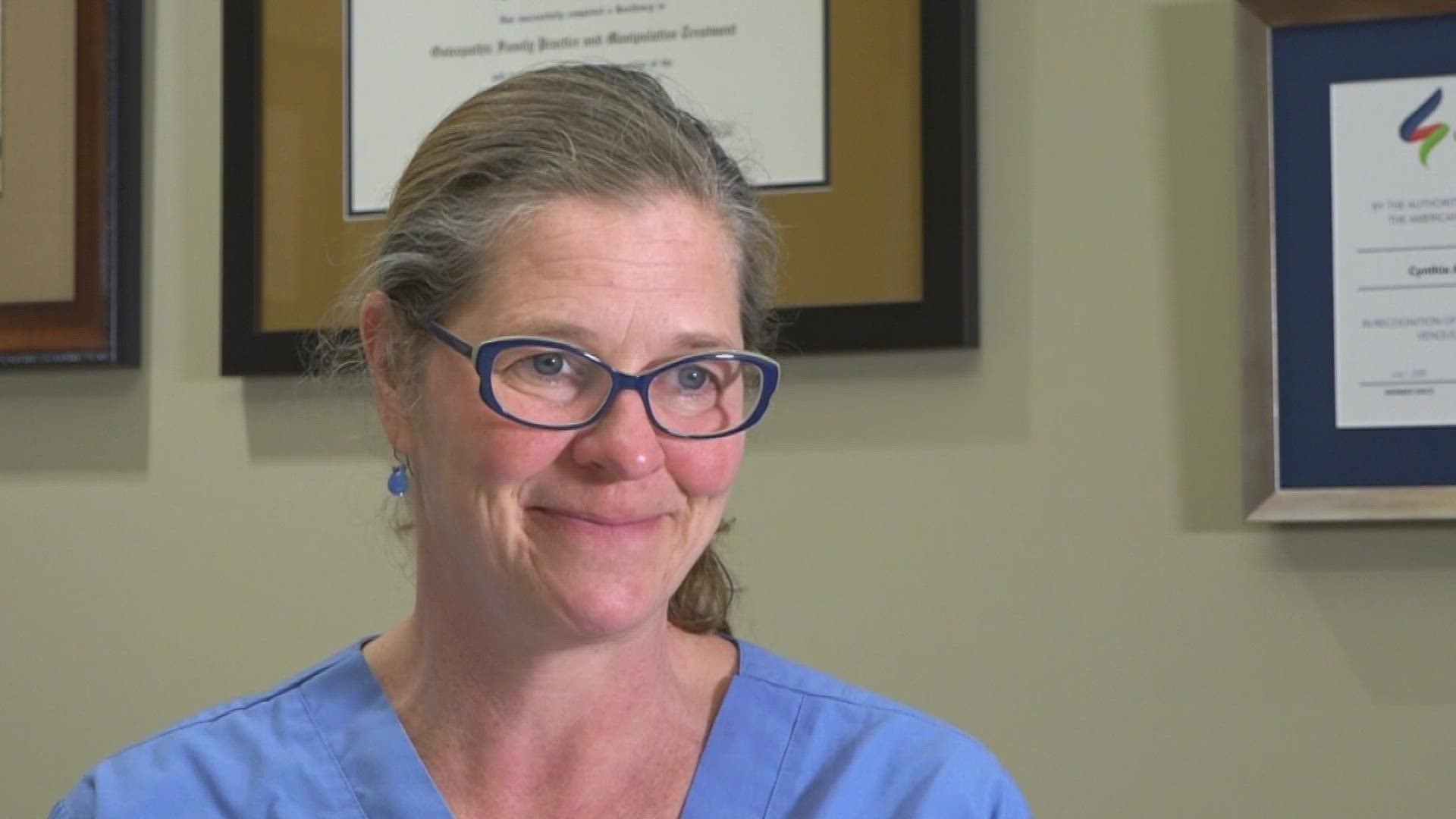SOUTH PORTLAND, Maine — March is Blood Clot Awareness Month, and Dr. Cindy Asbjornsen, founder of the Vein Healthcare Center, is helping to spread the word about this common—and often preventable—medical condition. She sat down with 207 to talk about blood clots and what we should know.
What is a blood clot, and why is it dangerous?
"Any time the blood is sitting still, it can kind of stick together," Asbjornsen said. "A clot is a group of cells that have stuck together, and they usually adhere to the wall of a vessel. In and of themselves, not dangerous, sometimes uncomfortable."
If a clot, or part of a clot, breaks off and begins to travel, it becomes an embolism. An embolism moving into the heart becomes a pulmonary embolism. If it travels to the brain, it can cause a stroke.
Asbjornsen is a phlebologist, a doctor specializing specifically in diagnosing and treating varicose veins, spider veins, and venous disease.
"The big part of preventing clots is to know your risks, to be aware of them, and to react to them," Asbjornsen said.
Often, she added, is it the "perfect storm" of various symptoms that creates the right environment for a clot to form.
Minor risks—some of which include increased age, obesity, tobacco use, or varicose veins—are the "straws that break the camel's back" when coupled with a lifestyle change, such as someone who has had surgery and has to spend some recovery time in bed.
Risks for developing blood clots, according to Asbjornsen:
- Hypercoagulation, a condition that causes your blood to clot more easily than normal. About 5 to 8 percent of the general population are genetically predisposed to forming blood clots.
- Certain conditions or diseases, such as pregnancy, cancer, and heart disease
- Stasis (a period of inactivity), causing your blood to flow too slowly or not at all. This can happen if you sit for hours on end, or if you are confined to your bed at the hospital or at home.
- Damage to the walls of a blood vessel due to injury or surgery
- COVID: Research is ongoing, but current studies show that the virus can cause, in some people, a significant inflammatory response that can damage the walls of veins and cause blood clots.
For more information about blood clots, including risks, click here. For more information about the Vein Healthcare Center, click here.

